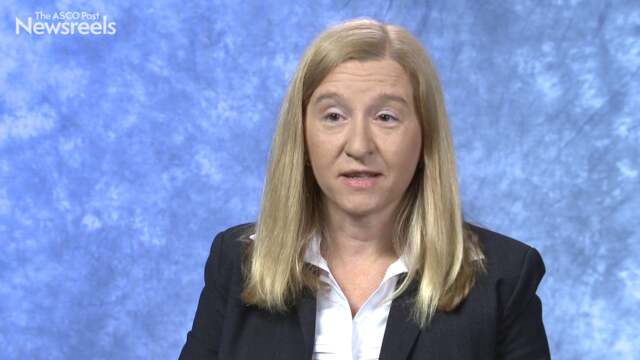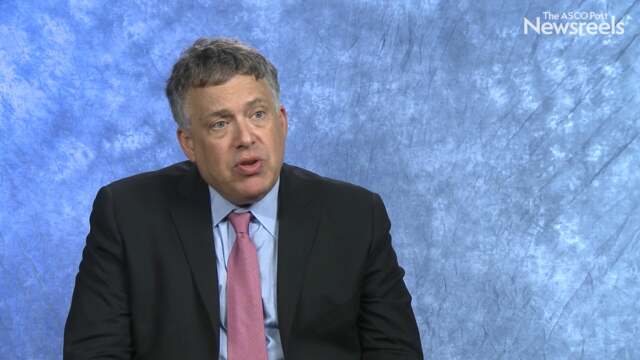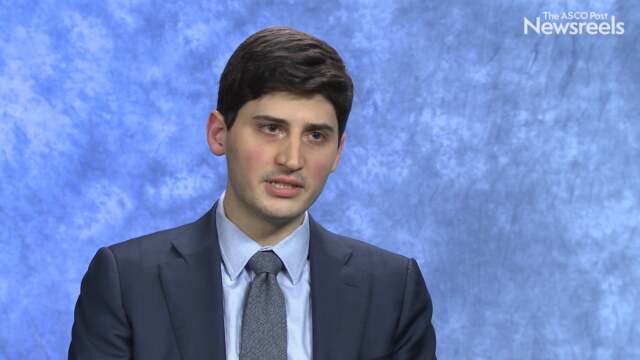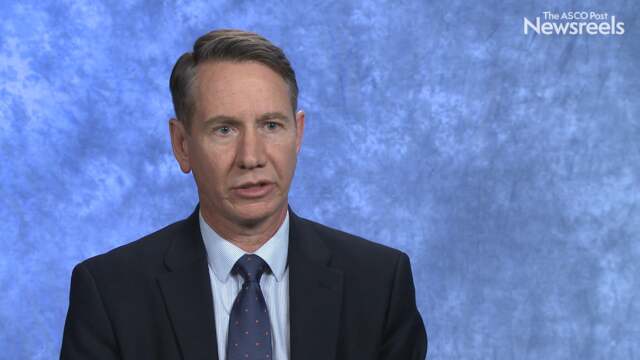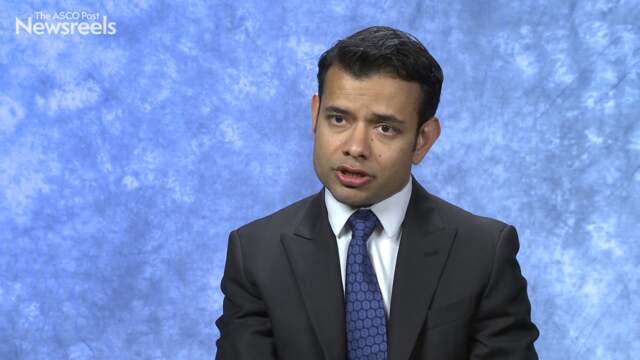Mary L. Disis, MD, on Basics of Immunology: An Overview
2018 ASCO-SITC Clinical Immuno-Oncology Symposium
Mary L. Disis, MD, of the University of Washington, discusses innate and adaptive immune system cells, T cells as key to mediating antitumor immunity, and the mechanisms by which cancer evades the immune system.
Linda Mileshkin, MBBS, of the Peter MacCallum Cancer Centre, discusses phase Ib trial findings on the anti–PD-1 monoclonal antibody BGB-A317 in combination with the PARP inhibitor BGB-290 in advanced solid tumors.
Roy S. Herbst, MD, PhD, of the Yale School of Medicine, summarizes a session that included discussion of the mechanisms of immunotherapies, biomarkers for activity of these agents, overcoming resistance, and using treatment combinations.
Jeffrey M. Lemons, MD, of the University of Chicago, discusses early safety and efficacy findings from a small study on pembrolizumab and multiorgan-site ablative stereotactic body radiotherapy in patients with advanced solid tumors (Abstract 20).
Stephen M. Ansell, MD, PhD, of the Mayo Clinic, discusses integrating immune checkpoint inhibitors, improving efficacy, and reducing toxicity when treating blood cancers.
Sumanta K. Pal, MD, of the City of Hope, discusses immunotherapy as a front-line treatment for kidney cancer and the strategy of VEGF blockade with immunotherapy, which is emerging as a possible treatment modality.
